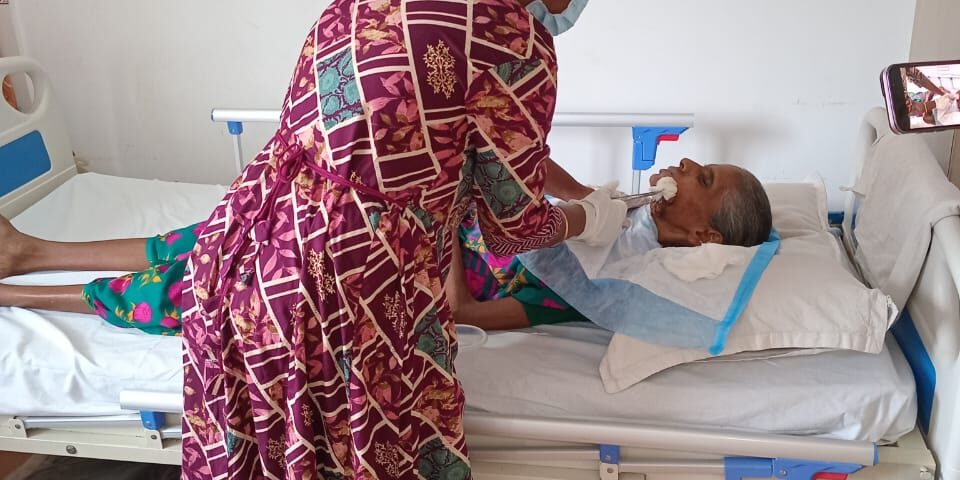Mrs. X, aged 43…..came to our hospital on 7th January 2025 with severe pain over the ….breast
and open wounds emitting a heavy foul odor. She appeared withdrawn and hesitant to speak.
When asked about her visit, she quietly inquired about our center. With gentle encouragement by
the nurse to share more, she was then introduced to Dr. Mathew During the consultation,
Mrs. X broke down in tears. She said she was in unbearable pain, unable to eat properly and had
kept herself at home due to her condition. She expressed feelings of hopelessness as she was told
by doctors seen previously that “nothing can be done”. The foul smell from her wounds had
isolated her even from her loved ones and she admitted to not liking herself anymore.
She recounted how one day, while sitting at home in despair, a neighbour who was the wife of a
former patient of Lakshmi Pain and Palliative Care Trust (LPAPCT) told her about our clinic and
encouraged her to seek help here. Although she had no hope, she decided to come, hoping
something might change.
Moved by her story, Dr. Mathew and the nursing team of LPAPCT provided her with all the
appropriate palliative treatment starting with pain relief medication. The nurses taught her how to
dress her wounds and advised her to visit the clinic daily. Over time, the foul smell reduced
significantly, and the maggots that had infested her wound were completely removed. After a
few weeks, dressing frequency was reduced to once every five days. Her pain too gradually
decreased.
One month later, Mrs. X expressed her heartfelt gratitude, saying, “No one was willing to come
near me, but you people came, cleaned my wounds, and gave me a reason to live again. I will be
thankful for my whole life.” She also mentioned that during a follow-up with her regular
oncologist, he was surprised by her progress. He remarked that her wounds no longer smelled,
were free of worms and subsequently initiated her on palliative chemotherapy for preventing
further spread of the disease.
Since then, the size of her wounds and breast lumps have been reducing. She is now eating
regularly, sleeping well, and even playing with her children – something she couldn’t imagine
doing before.
This real-life scenario highlights a few important facts:
- The vital need to treat and relieve distressing symptoms, medically and with empathy in
patients even with advanced disease, as soon as they manifest. - Averting unnecessary isolation and suicidal tendencies, by relieving their suffering and
significantly improving their quality of life. - Getting them back into social circulation and
- The importance of the knowledge of palliative care which includes mainly, Symptom
Management and Communication Skills for all doctors and nurses, which essentially
means the importance of inclusion of the basic principles into the undergraduate and
postgraduate curriculum.
